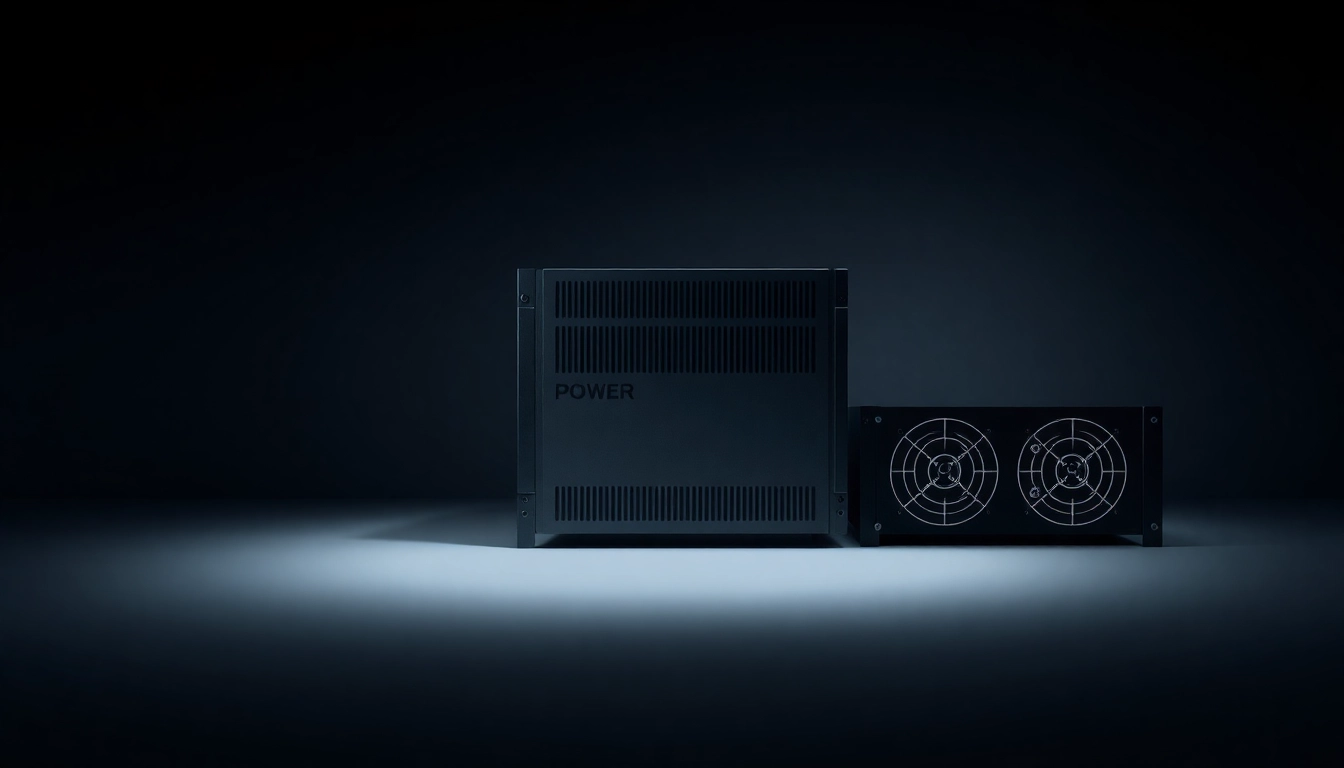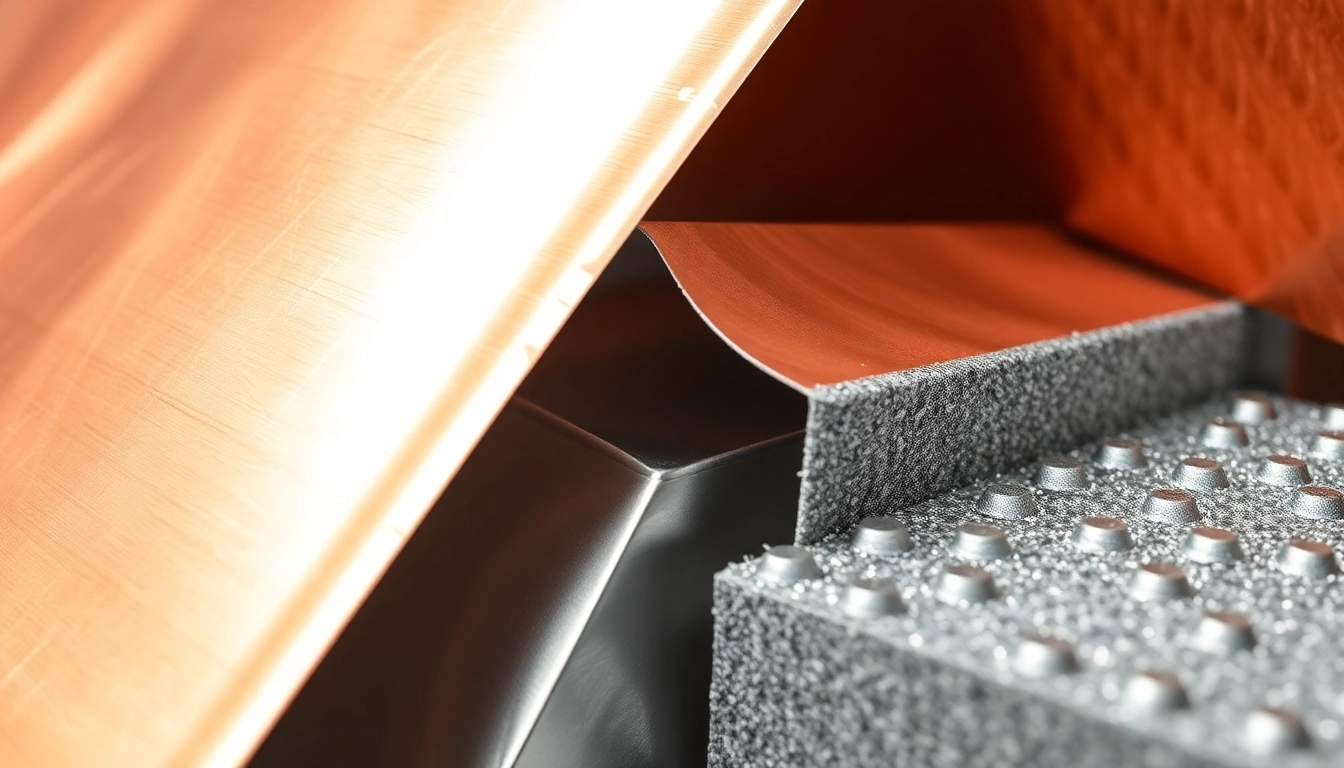Understanding Power Supply Manufacturers
When constructing or upgrading a computing system, choosing the right components is crucial. Among these, the power supply unit (PSU) stands out as one of the most vital elements. As such, understanding the role, significance, and variety of Power Supply Manufacturers is essential for making informed decisions. In this section, we will explore what makes a great power supply, the certifications and standards that define quality, and the considerations behind choosing local versus global manufacturers.
What Makes a Great Power Supply?
A great power supply is foundational to any robust computing setup, whether it be for gaming, professional workstations, or servers. Here are the critical elements that distinguish a quality PSU:
- Reliability and Stability: A great PSU should provide a continuous, stable flow of power without fluctuations that can harm components.
- Efficiency: Look for models with high efficiency ratings, such as 80 PLUS certifications, which indicate that the PSU converts the most energy while minimizing heat production and electricity consumption.
- Modularity: Modular PSUs allow users to connect only the necessary cables, improving airflow and reducing cable clutter.
- Protection Features: Quality PSUs offer multiple protection features such as over-voltage protection, under-voltage protection, short-circuit protection, and over-temperature protection.
- Cooling Solutions: Robust cooling systems are essential, especially under heavy loads. A PSU that runs cooler is less likely to encounter issues over time.
Top Certifications and Standards to Look For
Certifications and industry standards provide insight into the quality and performance of power supplies. Here are some prominent certifications that reputable power supply manufacturers strive to achieve:
- 80 PLUS Certification: This certification signifies that the PSU meets specific efficiency standards. Ranging from 80 PLUS Bronze to Titanium, higher tiers indicate better efficiency at different load levels.
- UL Certification: Underwriters Laboratories (UL) certification confirms that the PSU has been tested for safety against electrical hazards. It’s a mark of reassurance for consumers.
- CE Certification: This certifies that a product meets European health, safety, and environmental protection standards.
- ISO Certifications: ISO 9001 and ISO 14001 certifications indicate that the manufacturer adheres to quality management systems and environmental management standards, respectively.
Should You Choose Local or Global Manufacturers?
The decision to go with local or global manufacturers often depends on several factors including price, availability, and support. Here are some considerations:
- Local Manufacturers: Choosing a local manufacturer may result in faster support and return processes, potentially less shipping cost, and an easier time sourcing replacement parts.
- Global Manufacturers: Global brands often have established reputations, leading technology innovations, and wider product ranges. However, they may not provide local support, depending on the region.
- Hybrid Option: Sometimes, a hybrid approach offers the best of both worlds—relying on local support while utilizing proven global manufacturing standards.
Leading Power Supply Brands in the Market
As the demand for high-quality power supplies grows, several brands have established themselves as leaders in the market. In this section, we will discuss the top global power supply manufacturers, innovative brands to watch, and we’ll compare features and prices across various offerings.
The Top Global Power Supply Manufacturers
Several manufacturers stand out in the landscape of power supply units. Here’s a look at some of the most reputable brands:
- Seasonic: Renowned for their innovative designs and reliability, Seasonic offers a wide range of PSUs with excellent efficiency ratings.
- Corsair: A leading name in the gaming community, Corsair’s RMx and HX series are frequently recommended for their exceptional performance and modular capabilities.
- EVGA: Known for their reliability and performance, EVGA’s supernova series are favored by gamers and system builders alike.
- Thermaltake: Providing a balance between price and performance, Thermaltake offers unique designs and RGB lighting options that appeal to PC enthusiasts.
- Mean Well: Specializing in industrial-grade power supplies, Mean Well is known for robust products ideal for both professional and semi-professional applications.
Innovative Brands to Watch
Alongside the established giants, several innovative brands are carving out a niche in the power supply market:
- FSP Group: A leader in customizable power supply solutions, FSP focuses on energy efficiency and sustainable practices.
- Cooler Master: Known for their cooling solutions, Cooler Master also produces high-quality PSUs that integrate seamlessly with their cases.
- SilverStone: Famed for their compact designs and high-efficiency ratings, SilverStone also manufactures state-of-the-art power supplies that are ideal for small form factors.
Comparison of Features and Prices
Finding the right power supply at the right price can be daunting. When comparing features across brands, consider the following:
- Efficiency Ratings: Examine the 80 PLUS rating. Higher-rated supplies may come at a premium but can lead to savings in energy costs over time.
- Warranty Terms: A longer warranty period typically reflects a manufacturer’s confidence in their product and can offer peace of mind.
- Modularity: Decide between modular, semi-modular, and non-modular configurations based on your setup. Modular PSUs offer flexibility but typically at higher costs.
Choosing the Right Power Supply for Your Needs
Choosing the right power supply is a balance between performance, price, and personal requirements. This section provides insights on how to identify your needs, the advantages of different PSU types, and the importance of efficiency ratings.
Identifying Your Power Requirements
To select an appropriate power supply, first determine your system’s power requirements:
- Calculate Total Wattage: Sum the wattage of all your components including CPU, GPU, storage devices, and peripherals. Use online calculators or manufacturer specifications for accuracy.
- Consider Future Upgrades: If you plan to upgrade your hardware, selecting a PSU that can accommodate additional components without requiring a replacement is wise.
- Account for Peak Load: Ensure your chosen power supply has enough capacity to handle peak load conditions, particularly for high-performance gaming setups that demand bursts of power.
Your Options: Modular vs. Non-Modular PSUs
Understanding the distinction between modular, semi-modular, and non-modular PSUs can aid in decision-making:
- Modular PSUs: Allow users to connect only the cables they need, reducing clutter and improving airflow. Ideal for custom builds.
- Semi-Modular PSUs: Offer a combination of fixed and detachable cables, providing flexibility without completely sacrificing cost-effectiveness.
- Non-Modular PSUs: Come with all cables permanently attached. They are often less expensive but can lead to cable management challenges.
Understanding Efficiency Ratings
Efficiency plays a crucial role in power supply selection. Here’s how to interpret efficiency ratings:
- 80 PLUS Ratings: The program ensures that power supplies operate at least at 80% efficiency at 20%, 50%, and 100% of rated load. Look for higher levels like Platinum or Titanium for maximum efficiency.
- Impact on Energy Costs: A higher efficiency rating can translate to lower electricity bills, especially in regions with high energy costs over time.
- Heat Management: Efficient PSUs generate less heat, leading to improved longevity and performance stability.
Consumer Insights: What Users Say
Understanding consumer experiences and reviews can guide your decisions when selecting a power supply. This section examines customer insights, common issues, and expert recommendations.
Customer Reviews and Brand Reliability
Analyzing customer feedback across various platforms reveals trends in brand reliability:
- Brand Loyalty: Brands like Corsair and Seasonic receive consistent praise for their warranties, stability, and overall reliability.
- Performance Issues: Some users report subpar experiences with budget brands, highlighting failures under load and inadequate customer support.
- Community Recommendations: Gaming forums often spotlight customer favorites based on personal experiences, such as the recommendation of specific models like Corsair’s RMx series for quiet operation.
Common Problems and Solutions
No product is devoid of issues. Here are frequently encountered problems and their solutions:
- Random Shutdowns: Often caused by inadequate power, ensure your PSU meets or exceeds the wattage needed for your components.
- Overheating: Check ventilation in your case and ensure that the PSU has sufficient airflow. Dust build-up can also be a contributing factor.
- Noise Issues: Noisy operation may indicate a failing fan or poor-quality components. Consider upgrading to a PSU with better cooling features or quieter fans.
Expert Recommendations for Different Setups
Expert recommendations can help tailor power supply choices to specific scenarios:
- Gaming PCs: High-performance setups are often recommended to have a PSU rated 80 PLUS Gold or higher with a modular design for optimal airflow.
- Workstations: Professionals who require stable power should consider PSUs that support redundancy, particularly in critical applications.
- Budget Builds: For those on a tighter budget, focus on reputable brands that offer reliability at a lower price point while still being 80 PLUS certified.
The Future of Power Supply Manufacturing
The field of power supply manufacturing is adapting to technological advancements and growing consumer demands. This section discusses emerging trends, environmental considerations, and the evolving landscape of computing requirements.
Trends in Power Supply Technology
Continuous innovations are reshaping the power supply market:
- Smart Power Supplies: Integrated technologies that monitor performance, power metric reporting, and fault diagnostics are becoming commonplace.
- Compact Designs: As systems become smaller, there’s a trend toward compact PSUs that do not compromise on performance.
- Hybrid Cooling Solutions: Combine air and liquid cooling technologies for improved thermal management in high-performance setups.
Environmental Considerations for Manufacturers
With global awareness growing around environmental sustainability, power supply manufacturers are facing new challenges:
- Energy Efficiency: Regulatory bodies are pushing for improved energy usage standards, prompting manufacturers to rethink power electronics design.
- Recyclable Materials: The demand is increasing for PSUs made from recyclable materials, addressing e-waste issues.
- Regulatory Compliance: Manufacturers must comply with stringent environmental regulations, necessitating the adoption of cleaner technologies.
Adapting to New Computing Demands
The rapid evolution of technology necessitates that power supply manufacturers remain nimble:
- Support for New Standards: With the rise of more demanding GPUs and CPUs, manufacturers must ensure that their products support emerging standards like PCIe 5.0.
- Variety of Outputs: As more devices require USB-C and other connectivity options, PSUs are evolving to accommodate these changes.
- Reactive Designs: Manufacturers are increasingly using feedback from gaming and tech communities to refine their offerings and anticipate market needs.



